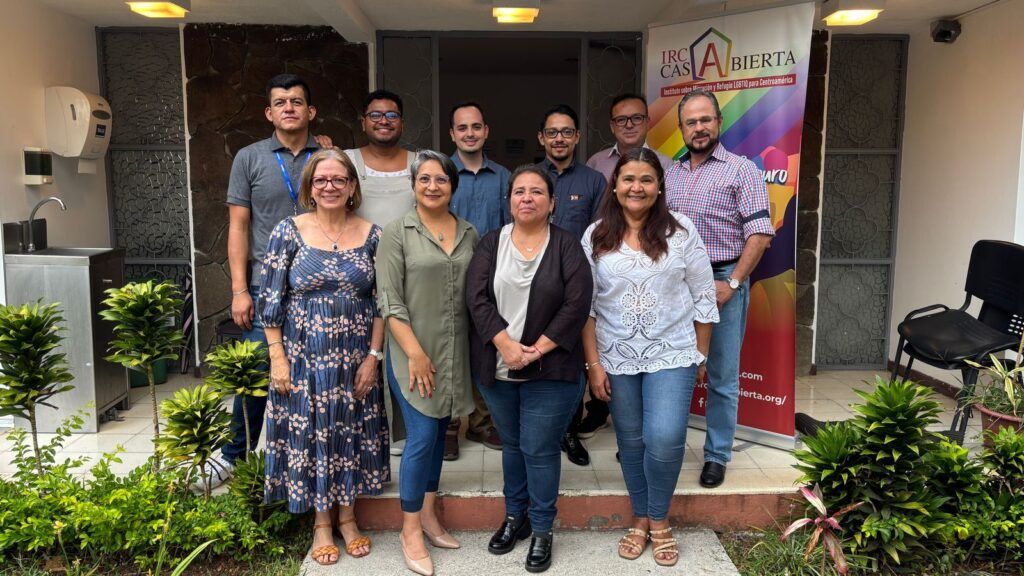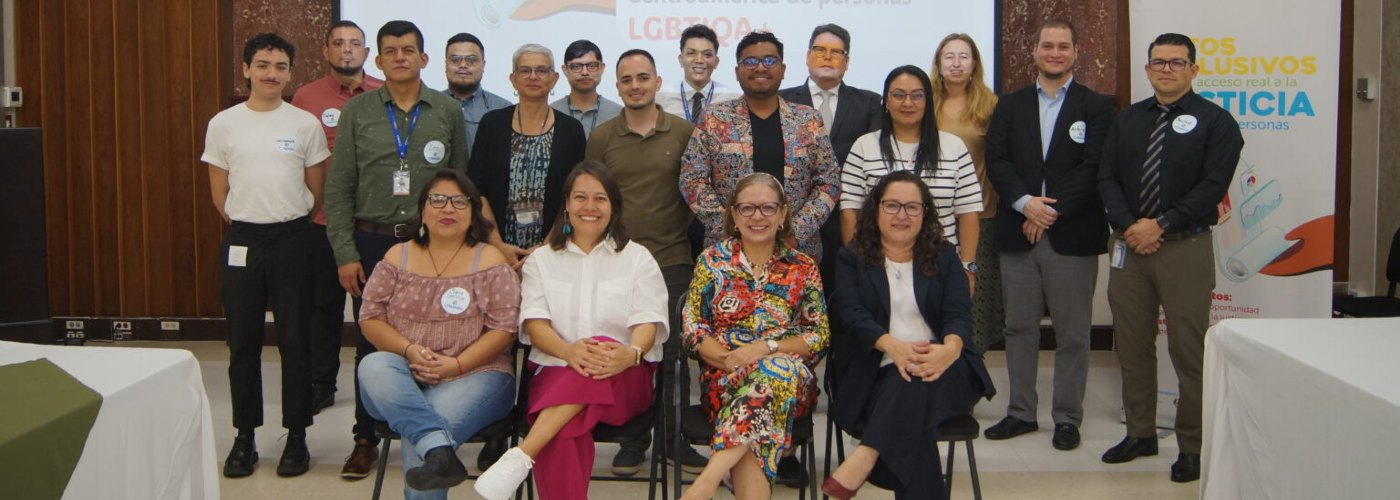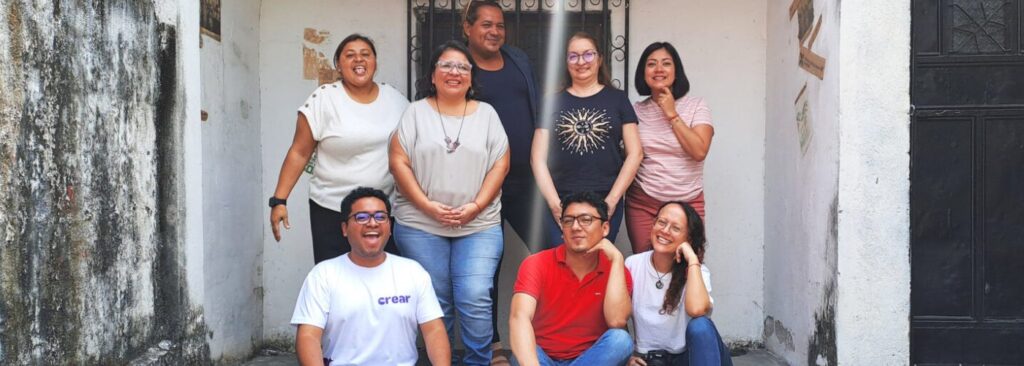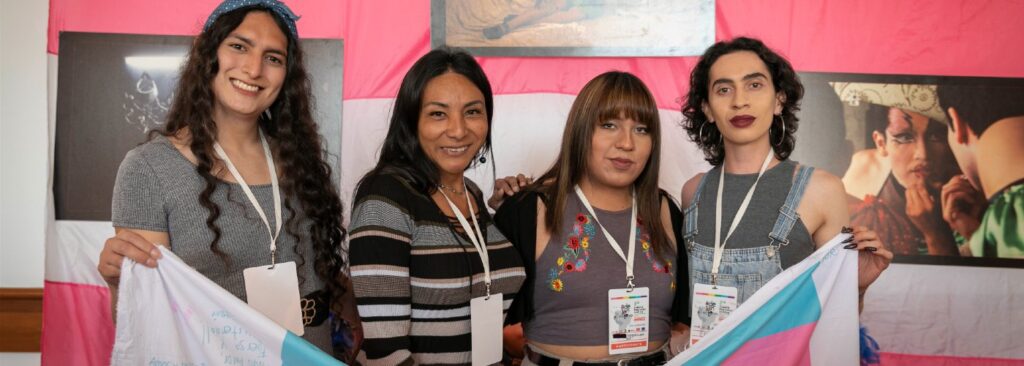Sharing experiences and best practices is the beginning of significant change in the justice system, as demonstrated by the recent meeting between civil society and judicial delegations from Costa Rica, Guatemala, and the Netherlands. They met to improve access to justice for LGBTIQ+ people and to tackle the urgent issue of ethical and sensitive data collection on LGBTIQ+ people in justice systems.
“Mapping violence – including how and where it happens – sets a precedent to achieve the necessary changes in legislation and classification of crimes against the LGBTIQ+ population. “If it is not written, we do not exist. If there is no data, we do not exist. This is how we demonstrate that violence against us exists and that we experience it.”
Leonardo Ortega Méndez in an earlier interview with Hivos
During a week of work led by CONAMAJ of the Costa Rican Judiciary, representatives of civil society and the judicial system shared experiences, best practices, and innovative ideas to ensure that statistics do not make people invisible, but rather protect and recognize them. The meeting was part of a three-way cooperation project supported by Hivos’ Adelante 2 program.
Voices that inspire, lessons that connect
The Guatemalan delegation included activists and human rights defenders with committed backgrounds:
- Saira Ortega, from Hivos, who stressed the urgency of having open and intersectional data in the judicial field
- Leonardo Ortega Méndez, from GAX NGO , who highlighted the importance of identifying common strategies between countries
- Misael Molina, from CREAR Escuintla, with perspectives from the most vulnerable territories
During their week-long visit to Costa Rica, the delegation had scheduled exchange visits to learn about initiatives and projects led by organizations focused on data transparency and protection to uphold the rights of the LGBTIQ+ community. They visited the Supreme Electoral Tribunal, the Ombudsman’s Office, the non-governmental organization IRCA CASABIERTA, and the Inter-American Court of Human Rights.
Beyond the numbers: data that protects lives
Data is not neutral. It is a powerful tool for change, and when collected responsibly and with empathy, it can make the difference between exclusion and access to rights.
“If we don’t have data, we can’t protect rights.”
As Cristina Follana of the Spanish Agency for International Development Cooperation (AECID) put it, “If we don’t have data, we can’t protect.” This phrase sums up the spirit of the project, which advocates for a more accessible, humane, and more aware justice system that addresses the realities experienced by sexually diverse people in the region.
Leonardo Ortega stated that it is necessary to “identify these common strategies lines to continue working across countries and sectors.” He highlighted the work of public institutions and organizations in recognizing the rights of these populations and said the meeting was highly valuable in understanding how data is collected and the need for sensitivity in dealing with vulnerable populations. “It met all my expectations; we learned a lot,” concluded the director of GAX NGO.
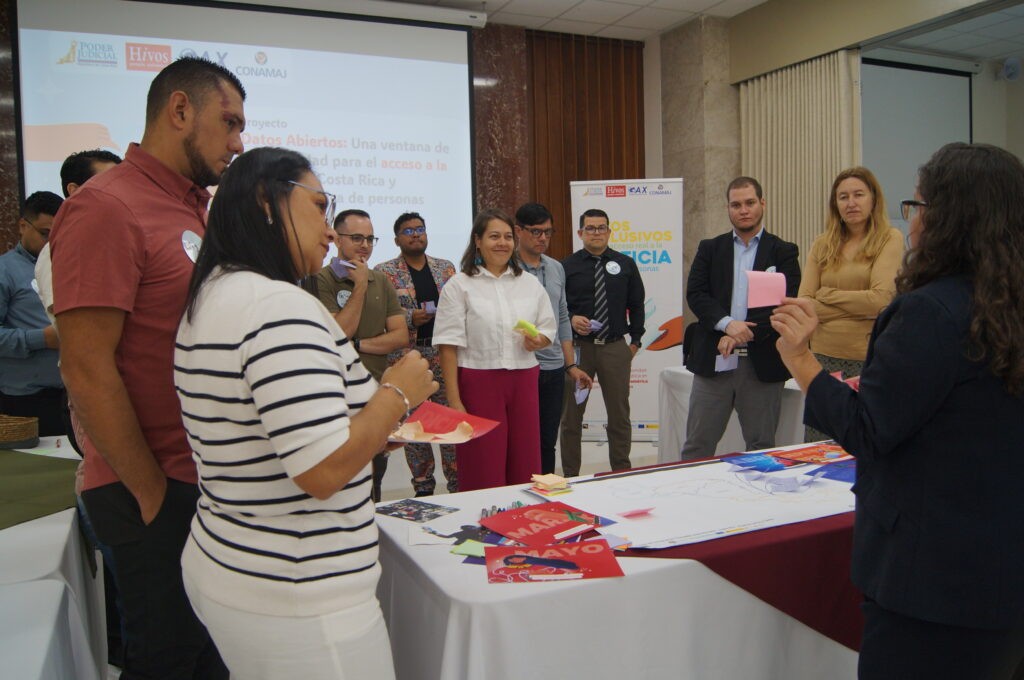
A shared future
The week of visits and meetings also included a workshop with nearly 20 participants to improve how judicial personnel and civil society serve the sexually diverse population and collect their data.
For Saira Ortega, open data in judicial services, specifically for LGBTIQ+ populations, is a priority. “One of our expectations is that this exchange will endorse collaborative and intersectional approaches (…) to providing quality services to these populations.” She described the visits as enriching and highlighted the commitment of public institutions and civil society organizations to continue improving and jointly creating violence-free spaces, despite the challenging economic and social context.
Cristina Follana, project manager for the Spanish International Development Cooperation Agenda (AECID) in Costa Rica, said this project has made a crucial contribution to raising the profile of vulnerable groups. She concluded by stating: ”If we don’t have data, we can’t protect rights.”
